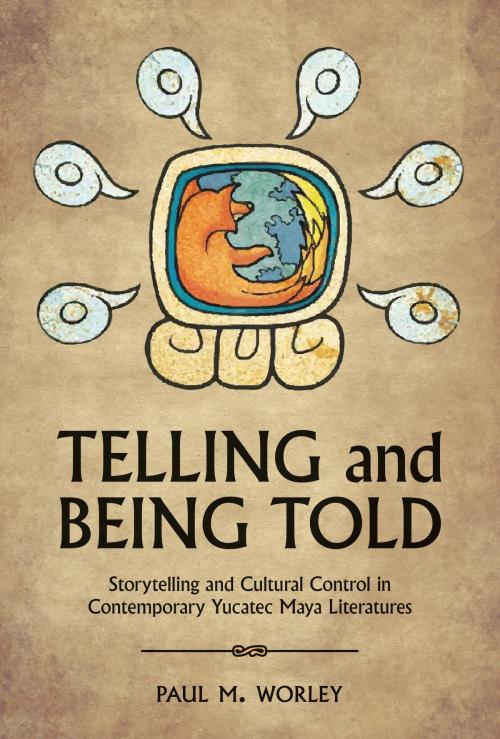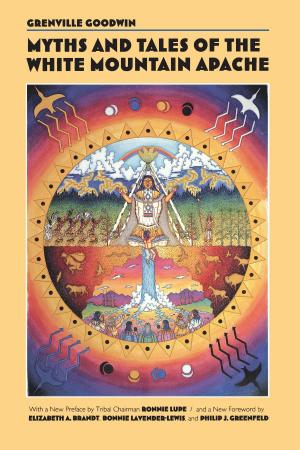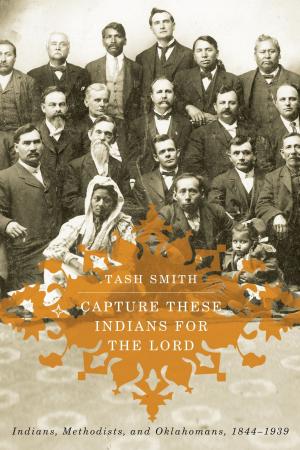Telling and Being Told
Storytelling and Cultural Control in Contemporary Yucatec Maya Literatures
Nonfiction, Social & Cultural Studies, Social Science, Anthropology, Cultural Studies| Author: | Paul M. Worley | ISBN: | 9780816599097 |
| Publisher: | University of Arizona Press | Publication: | October 10, 2013 |
| Imprint: | University of Arizona Press | Language: | English |
| Author: | Paul M. Worley |
| ISBN: | 9780816599097 |
| Publisher: | University of Arizona Press |
| Publication: | October 10, 2013 |
| Imprint: | University of Arizona Press |
| Language: | English |
Through performance and the spoken word, Yucatec Maya storytellers have maintained the vitality of their literary traditions for more than five hundred years. Telling and Being Told presents the figure of the storyteller as a symbol of indigenous cultural control in contemporary Yucatec Maya literatures. Analyzing the storyteller as the embodiment of indigenous knowledge in written and oral texts, this book highlights how Yucatec Maya literatures play a vital role in imaginings of Maya culture and its relationships with Mexican and global cultures.
Through performance, storytellers place the past in dynamic relationship with the present, each continually evolving as it is reevaluated and reinterpreted. Yet non-indigenous actors often manipulate the storyteller in their firsthand accounts of the indigenous world. Moreover, by limiting the field of literary study to written texts, Worley argues, critics frequently ignore an important component of Latin America’s history of conquest and colonization: The fact that Europeans consciously set out to destroy indigenous writing systems, making orality a key means of indigenous resistance and cultural continuity.
Given these historical factors, outsiders must approach Yucatec Maya and other indigenous literatures on their own terms rather than applying Western models. Although oral literature has been excluded from many literary studies, Worley persuasively demonstrates that it must be included in contemporary analyses of indigenous literatures as oral texts form a key component of contemporary indigenous literatures, and storytellers and storytelling remain vibrant cultural forces in both Yucatec communities and contemporary Yucatec writing.
Through performance and the spoken word, Yucatec Maya storytellers have maintained the vitality of their literary traditions for more than five hundred years. Telling and Being Told presents the figure of the storyteller as a symbol of indigenous cultural control in contemporary Yucatec Maya literatures. Analyzing the storyteller as the embodiment of indigenous knowledge in written and oral texts, this book highlights how Yucatec Maya literatures play a vital role in imaginings of Maya culture and its relationships with Mexican and global cultures.
Through performance, storytellers place the past in dynamic relationship with the present, each continually evolving as it is reevaluated and reinterpreted. Yet non-indigenous actors often manipulate the storyteller in their firsthand accounts of the indigenous world. Moreover, by limiting the field of literary study to written texts, Worley argues, critics frequently ignore an important component of Latin America’s history of conquest and colonization: The fact that Europeans consciously set out to destroy indigenous writing systems, making orality a key means of indigenous resistance and cultural continuity.
Given these historical factors, outsiders must approach Yucatec Maya and other indigenous literatures on their own terms rather than applying Western models. Although oral literature has been excluded from many literary studies, Worley persuasively demonstrates that it must be included in contemporary analyses of indigenous literatures as oral texts form a key component of contemporary indigenous literatures, and storytellers and storytelling remain vibrant cultural forces in both Yucatec communities and contemporary Yucatec writing.















